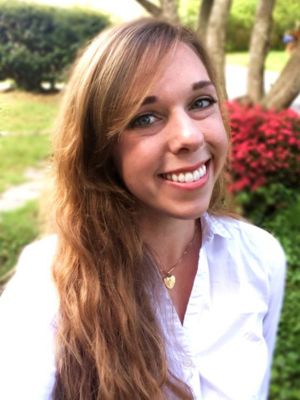Introducing Emily Weichart: Brain and Cognition's Newest Faculty Member

Dr. Emily Weichart is the newest faculty member of USU's Brain and Cognition Specialization. Her research investigates the connection between perception, memory, and decision making with the broader goal of understanding how these processes collectively shape knowledge and guide human actions.
What drew you to USU?
So many things! USU is a top-ranked research institution with a stellar doctoral program in Psychology, and let’s not forget the stunningly beautiful scenery! I will say that what drew me to USU the most is the outstanding support and resources that the university, college, and department provide to its students and faculty to do cutting-edge research. It is one thing to have world-class research facilities (which USU has!), but quite another to be surrounded by supportive and inclusive colleagues and administrators who are just as passionate about science as I am. It is an incredible environment for research and collaboration, and I cannot be more thrilled to be a part of it.
What would you like the public and potential students to know about your research?
Memory is at the core of everything we do as humans. Every habit, preference, and personality trait that make us who we are have been shaped by our previous experiences. As the director of the Quantified Cognition Lab at USU, my research is dedicated to understanding how we represent the contents of our experiences in memory, and importantly, how to quantify those representations. To do this, my lab collects eye-tracking, behavioral, and electrophysiological data as participants learn novel concepts. By collecting multiple streams of data, we gain precise insight into 1) the sources of information that participants pay attention to as they learn; 2) how people use the information that they learn to make decisions; and 3) how the brain adjusts its representations when the learning environment suddenly changes. Through quantifying the building blocks of experience, we can begin to understand of the mechanisms through which they change over time, and importantly, how things can go wrong. This work therefore offers a world of new opportunities for investigating the effects of age, illness, and associated treatment on cognition via precise measurements, rather than subjective reports or descriptive symptom profiles.
What is your mentorship philosophy?
It is important that students know that every amazing scientific discovery that they see in journals like Science and Nature was preceded by 1000 failed experiments. One aspect of my mentorship philosophy is to appreciate what we learn from each iteration of a new idea, experimental paradigm, or model specification, in addition to the bigger milestones like publishing a paper. I therefore encourage students to be inquisitive, question their own results, explore and learn new approaches, and challenge one another to consider alternative perspectives. Our goal is to understand, and sometimes that takes some trial-and-error.
What advice do you have for students pursuing a PhD?
As my own grad school mentor always used to say: “You can do anything you want, as long as it works.” In grad school, you’re going to learn a lot of different theoretical and methodological approaches for answering questions in science. Although everything you learn should be taken to heart, true innovation comes from pushing boundaries and thinking outside of the box. There’s not always going to be a “right way” to investigate a question or design an analysis, and this is especially true if you are doing cutting-edge research. My advice is to trust yourself, trust your training, and don’t be afraid to forge your own path. Each student has a unique perspective and set of experiences, and bringing your expertise and your creativity to scientific pursuits is what makes this field great!
What do you love most about your job?
The best part about my job as a researcher and professor is when I get to share my excitement about psychology--with anyone who will listen! I cherish discussion about new findings, exchanges of ideas and interpretations, and trying to figure out what each new discovery “means” when we consider the broader context of the human experience.

